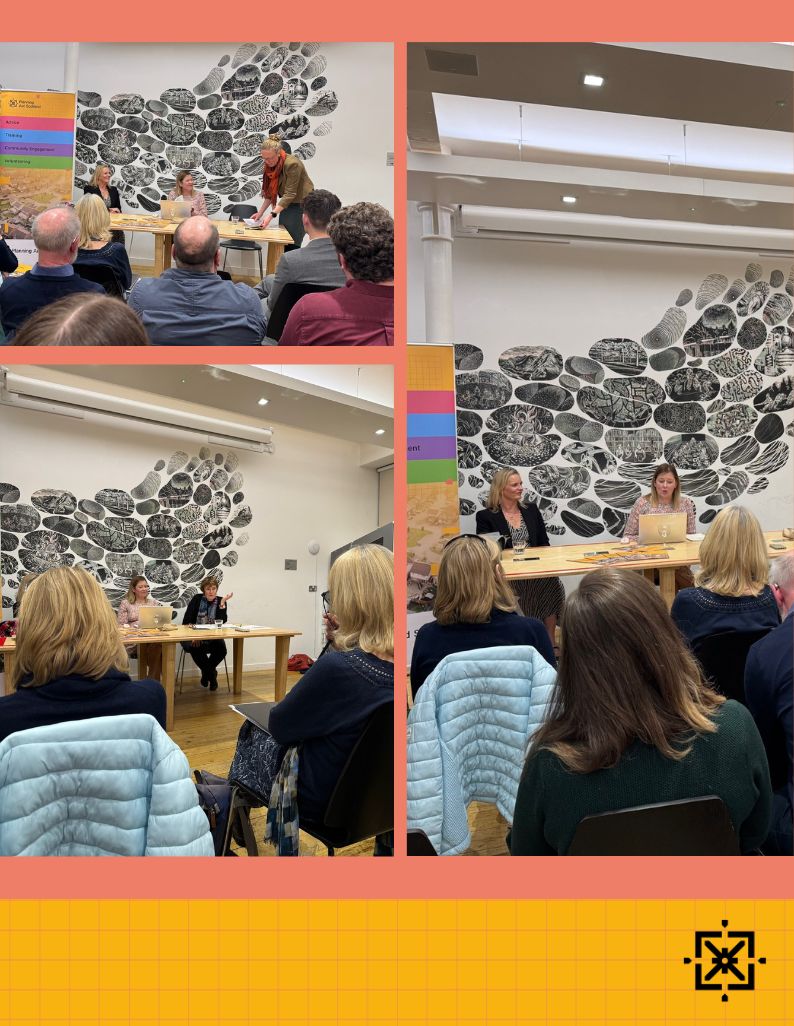News | Posted November 12, 2025
Planning Aid Scotland marks a year of community impact and collaboration at its Annual General Meeting
Planning Aid Scotland has marked a year of significant milestones and community achievements at its Annual General Meeting, held in Edinburgh.
The event brought together planners, volunteers and partners from across Scotland to reflect on the organisation’s progress and look ahead to the future of inclusive planning.
Speakers included Zoë Holliday, CEO of Community Energy Scotland (CES), and Sarah Boyack MSP, both of whom shared insights on community-led planning, renewable energy and Scotland’s path to net zero.
Outgoing Planning Aid Scotland Chief Executive Johanna Boyd attended to conclude her time with the organisation and highlight a year of remarkable progress: the delivery of seven Local Place Plans in partnership with communities, the publication of Planning Aid Scotland’s first Impact Report (2024/25), and the release of the Energy Consents Information Guide, a resource that has been widely welcomed by planners, developers and communities.
Boyd also reflected on Planning Aid Scotland’s 30th anniversary year and the successful rollout of its refreshed brand identity, describing the past twelve months as “one of the most collaborative and productive periods in Planning Aid Scotland’s history.”
During the AGM, Tamsie Thomson, Gillian Dick, Jane Weir, Dan Sharp and Jackie Halawi were appointed to the Planning Aid Scotland Board of Directors, bringing a wealth of expertise spanning architecture, spatial planning, local government and regional collaboration. Marguerite Hunter Blair, Julia Frost, Andrew Sim, Declan King, Iain Paton and Alasdair Sutherland stepped down from the Board following their terms of service, with thanks expressed for their significant contributions to the organisation’s work.
A year of achievement and collaboration
This year’s AGM underscored Planning Aid Scotland’s role in supporting communities to shape their places, championing fair access to the planning system and promoting collaboration across sectors.
We’re deeply grateful to our speakers, Board of Directors, volunteers and partners for their commitment to making planning more inclusive. Our work this year shows what can be achieved when professionals and communities come together to create better places for everyone.
As Planning Aid Scotland looks ahead to 2026, its focus remains on strengthening community voices, fostering collaboration and helping deliver a more sustainable, equitable future for Scotland’s towns and communities.

